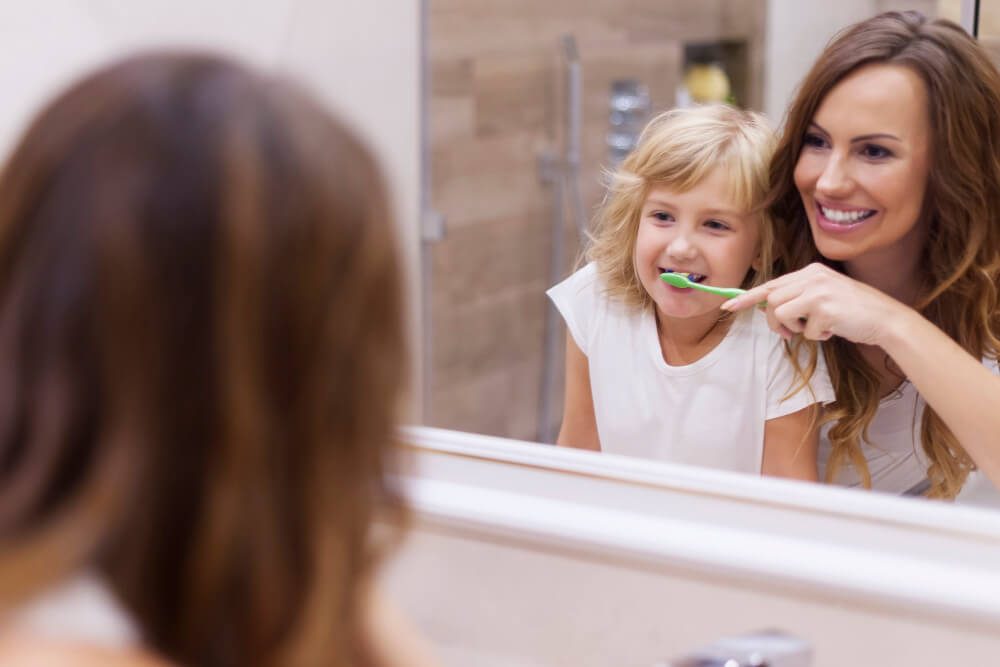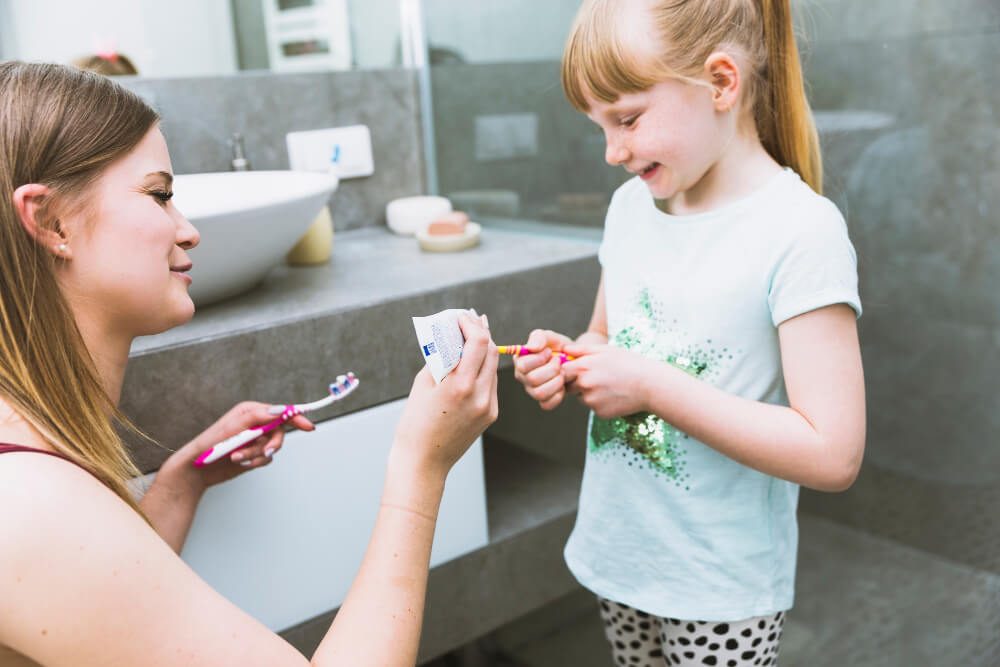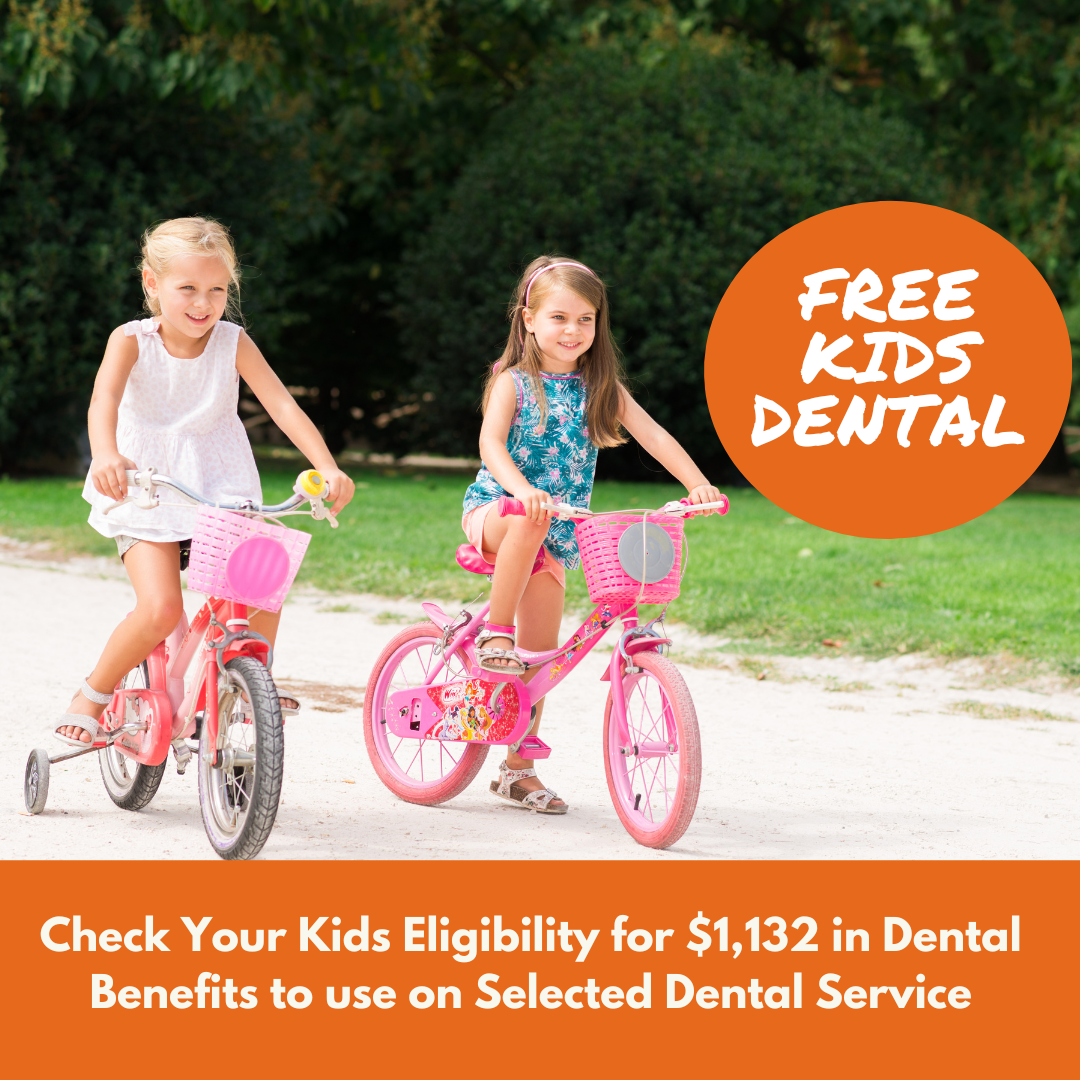How to Brush Your Child’s Teeth Safely

Your child’s baby teeth may be temporary, but they play a vital role in their development. These first teeth help with chewing, speaking, and holding space for the following adult teeth.
That’s why learning how to brush your child’s teeth correctly is essential to good oral hygiene and overall health. Even though baby teeth eventually fall out, neglecting them can lead to problems.
If baby teeth decay and are removed too early, it can cause crowding when adult teeth begin to emerge. That’s where early habits—and a little patience—go a long way.
Start Early: Oral Hygiene Before Teeth Erupt
Good oral care can begin even before your child’s first tooth appears. Using a fresh, moist cloth to gently wipe your baby’s gums twice a day—especially after feedings—helps remove bacteria and introduces them to oral care.
Think of it as the baby’s version of a daily routine, similar to putting on hats or shoes to help them adapt.
Once the first baby tooth erupts, you can switch to a soft, age-appropriate toothbrush. Sit your baby comfortably in your lap or place them on a bed with their head resting gently near you so you can see clearly and brush safely.
Tips to Keep You Child’sTeeth Clean
- Children don’t need toothpaste until they are 18 months old; until then, cold water is fine.
- Brush your child’s teeth twice a day, using small circular motions.
- Use a small, soft-bristled toothbrush and a pea-sized amount of fluoride toothpaste suitable for children. This can help strengthen the outside of the teeth and prevent decay.
- Remind them not to swallow the toothpaste.
- Their teeth should be cleaned at least twice daily, after eating and before bed.
- Make sure they brush for at least 2 minutes. Try using an egg timer to make time management fun for your child.
- Help your child brush their teeth from when they get their first tooth until they are seven or eight. A good indication that your child can brush their teeth is that they can tie their shoelaces; until then, they are not dextrous enough. After that, supervising them is still essential.
- Try to get into a regular tooth brushing routine and praise your child when brushing their teeth well. Create a wall chart and reward system to keep your child motivated and track their brushing routine.
- Replace toothbrushes or toothbrush heads every three months. Keeping track of these dates at the start of each new season is a great idea.
- Children should floss as soon as they have two teeth in contact with each other. You should supervise flossing until they are about 10 years of age. Floss picks rather than tape may make this necessary task a lot easier.
- Many apps are now available to make brushing time fun. These apps can help ensure that all surfaces of the teeth are thoroughly cleaned.

A Word on Fluoride and Toothpaste
Using fluoride toothpaste helps protect your child’s teeth from decay. It increases tooth resistance to bacterial acid assaults and strengthens enamel.
However, ensure your child spits the toothpaste and avoids swallowing it. Until they get the hang of it, closely supervise the process.
If you’re unsure which toothpaste is right for your child or when to introduce fluoride, your local dentist can guide you based on your child’s age and risk of tooth decay.
Establishing a Long-Term Habit
One goal of children’s dentistry is to treat problems when they arise and prevent them altogether. Early dental hygiene instruction creates a solid basis for your child’s long-term oral health.
Building habits early also helps reduce fear or anxiety around dental visits. When tooth brushing is part of a child’s daily routine, it becomes second nature rather than a chore.
When to See a Dentist
Schedule your child’s first dental visit by the time their first tooth appears or at least their first birthday. Frequent dental examinations guarantee that everything grows normally and help spot problems early.
These visits also allow your North Lakes dentist to demonstrate how to brush your child’s teeth effectively based on age and needs. Your dentist can also advise on fluoride treatments, dental sealants, and other preventive care options to protect your child’s smile—all essential aspects of children’s dentistry.
Children’s Dentistry in North Lakes
Caring for baby teeth isn’t just about today—it’s about setting your child up for a lifetime of healthy smiles. By learning how to brush your child’s teeth properly and following consistent habits, you’re giving them more than clean teeth—you’re teaching them responsibility, routine, and the value of health.
If you have questions or want to ensure your child’s teeth are developing correctly, Passion Family Dental North Lakes is here to help.
Call (07) 3465 1199 or visit us at Unit 4/6 Endeavour Boulevard in North Lakes.

